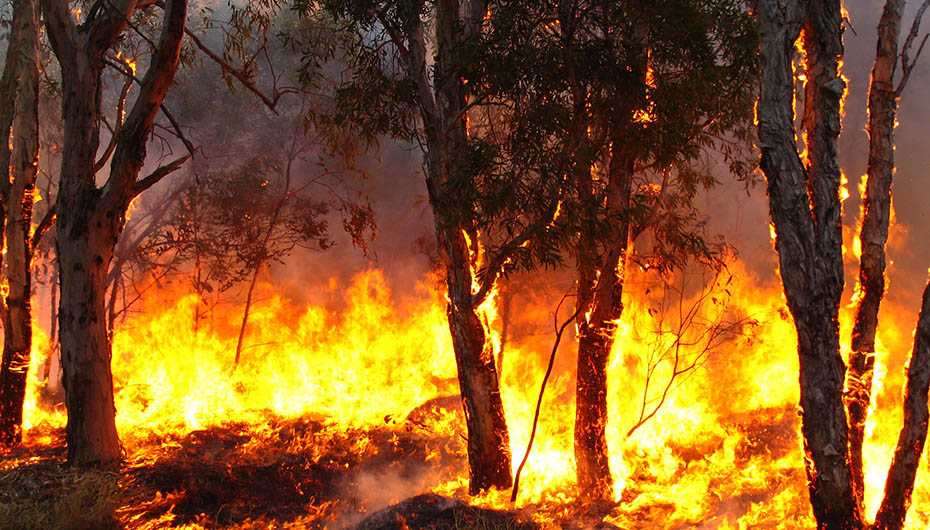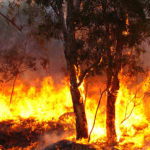Media Centre - Media release - 9 January 2020
Plan International Australia releases guide to talking to children about bushfires and disasters

Media contact: Claire Knox, 0452 326 549/ claire.knox@plan.org.au – guide is available for download here.
As Australians brace for another week of catastrophic fire conditions, Plan International Australia has today launched a guide to help parents talk with their children about out-of-control fires and disasters.
The How to talk to your kids about out-of-control fires guide, co-authored by child psychologist Karen Young, offers parents simple and practical tips on how to support children who may be distressed by fires, sirens and emergency personnel nearby or news reports on television about fires in Australia.
Research from the Australian Catholic University has shown that between 7% and 45% of children suffer depression, anxiety or distress after experiencing a natural disaster.
Since bushfire season began unusually early in August, children have watched on as more than 10 million hectares have burned and more than a billion precious wildlife have perished.
The fires have already claimed 25 lives and thousands of homes – and that number is expected to rise. Many families in affected areas have spent much of the holiday season in evacuation centres; while those in safer areas have watched the horror unfold on television screens. Hundreds of schools have closed and some have even been destroyed.
Director of Advocacy at Plan International Australia, Hayley Cull, said children are witnessing the very real and devastating impacts of climate change.
“This summer’s unprecedented fires are a stark reminder that the climate emergency is upon us. Even for children who are not directly affected by this disaster, it can be very scary as rolling news coverage heightens anxiety,” Ms Cull said.
“Plan International Australia works every day to support children around the world who are caught up in natural disasters like the devastating flooding in Indonesia, coping with the impacts of climate change in places such as the Pacific, or living through protracted emergencies, like the food shortages and growing hunger crisis in Southern Africa.”
“Through our work with children, we have learnt that kids are better able to comprehend and cope with disasters when they are reassured of their safety, that they are not alone in their feelings, and of the positive stories of communities helping each other out.”
“Parents are best placed to allay anxieties and to provide the facts as well as talking about hope for the future. But it can be hard to know where to start. That’s why our experts in child protection have created this guide. We hope it serves as a useful conversation starter and helps families to navigate these difficult times.”
Ms Young said this summer’s horrific bushfires could fuel anxiety, distress and even depression in young people and that it is critical that parents acknowledged their feelings and provided reassurance.
“Children might respond in many different ways to news of the fires. They might feel scared, sad, confused or they might feel nothing at all. Let them know they aren’t alone, and that whatever they are feeling is completely understandable,” she said.
The guide offers key steps in how to approach these conversations with young people, such as:
- Letting children know that what they are feeling is ok. Validating fears and feelings, but from a position of strength;
- Reassuring children who express fear or anxiety, but answering questions honestly, with as much information as they need to feel safe;
- Helping children understand they are not alone and reminding them that there is a community of emergency workers, charities and people around them doing good;
- Talking to children about the importance of keeping up to date with weather and warnings and including children in family fire plans, making sure they know their vital information such as emergency contact numbers;
- Encouraging children towards acts of kindness and equipping them with a sense of helpfulness rather than helplessness in an emergency
Plan International responds to emergencies and disasters around the world when they happen so that children and families affected are helped as soon as possible. We provide nutritious food, clean water, safe places for children to play and relax, and sanitation kits. Disaster risk reduction is a proven life-saver, so we also help children develop evacuation plans and teach them about the disasters their region might experience.
About Plan International Australia
Put simply, we’re the charity for girls’ equality. We tackle the root causes of poverty, support communities through crisis, campaign for gender equality, and help governments do what’s right for children and particularly for girls. We believe a better world is possible. An equal world; a world where all children can live happy and healthy lives, and where girls can take their rightful place as equals.
Media contacts

